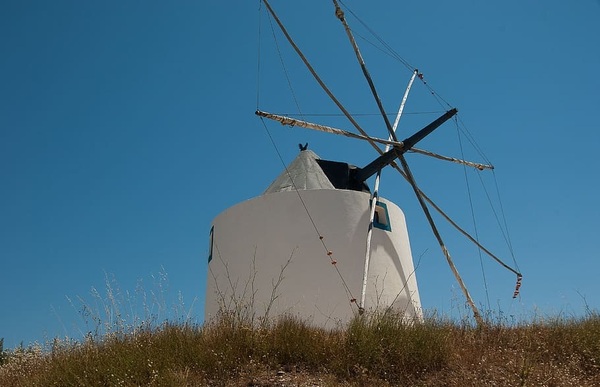
–>
March 28, 2023
I’ve been in Portugal for the last week, visiting Lisbon, Porto, going to listen to Fado music — made world-famous by Fado singer Amália Rodrigues — and visiting the Douro port-wine growing region.
‘); googletag.cmd.push(function () { googletag.display(‘div-gpt-ad-1609268089992-0’); }); }
Thank goodness I am a racist-sexist-homophobe insurrectionist and not in the least worried about the end of the world from climate change and environmental degradation.
Once you get out of Lisbon and Porto and their crazy winding streets there are only three things going on. There are endless forests of eucalyptus, used for papermaking; there are terraced vineyards and olive orchards on every hillside; and there are cork trees.
I had a major revelation on the cork tree front. I have never understood how they removed the bark from cork trees without killing the tree. No problem. You can strip the bark off the trunk all the way up past the first branches, and the cork tree just grows the bark back in seven years or so.
‘); googletag.cmd.push(function () { googletag.display(‘div-gpt-ad-1609270365559-0’); }); }
So much for cork trees. Now let’s get serious. When people view the Portuguese vineyards growing good British port, they ooh and aah at the pretty landscape: the terraces, the vines, the villages, and the olive orchards in-between.
But I was shocked.
These vineyards typically sit on hillsides that were terraced eons ago for the convenience of the vines and the humans exploiting them. In the old days the terraces were held up by dry stone walls, which was fine unless the wall was breached by a flood of water during a thunderstorm. Today, the terraces are excavated by construction excavators with a steep slope between terraces. OMG.
Do you see what I see? A natural landscape of pine forest has been ravaged by greedy British port-wine corporations: brands like Taylor, Blackett, Symington. And people come to visit and think it is cute!
And the Douro River! Back in the day, the Douro was home to migratory salmon, and barcos rabelos — sailing cargo boats — brought the port wine barrels down the fast-flowing Douro to Porto. Gangs of men warped os barcos rabelos back up the river for the next batch of barrels.
 Today the Douro is dammed, and the salmon can forget it. But there is hope, as “Scientists uncover new information on the Douro river ecosystem” and “the threats to freshwater biodiversity stemming from hydropower dams and obstacles in the Douro river.” Anyway, who needs hydropower when Portugal is already saturated in climate-saving wind turbines along every ridge?
Today the Douro is dammed, and the salmon can forget it. But there is hope, as “Scientists uncover new information on the Douro river ecosystem” and “the threats to freshwater biodiversity stemming from hydropower dams and obstacles in the Douro river.” Anyway, who needs hydropower when Portugal is already saturated in climate-saving wind turbines along every ridge?
‘); googletag.cmd.push(function () { googletag.display(‘div-gpt-ad-1609268078422-0’); }); } if (publir_show_ads) { document.write(“
More good news. They were planning to dam a tributary of the Douro, the Côa river. But then someone found ancient rock art in the Côa valley, and the rock art site is now a UNESCO protected site, where you can see 12,000 to 28,000-year-old rock drawings of mountain goats, horses, aurochs and the occasional deer or fish. Did the ancients gather at the protected rock art site for feasting on roast auroch? Or for rock-art chiseling lessons? Or what?
One thing about travel to foreign parts is that you get to see a major U.S. export — the stupid and expensive conceits and fashions of our educated-class rulers — being adopted by stupid and conceited educated-class rulers elsewhere in the world. You fly over Britain early in the morning and notice lots of offshore wind farms and you think: Oy. Then you fly over the North Sea and see more offshore wind farms and you think: Oy. Then you finally fly towards the Dutch/German shore and you see more offshore wind farms and you think: Oy.
And you get to thinking — or at least I get to thinking — that the last thing a middle-income country like Portugal needs is the wealth and income drain of fashionable educated-class nostrums from the imperial U.S. HQ, ably assisted by the globalist EU HQ.
Will we ever get to push back against ruinous ruling-class fashion?
I was reading a piece by Keith Naughton about how even GOP voters back Biden’s giveaways, from price caps on insulin to maternal health care. And don’t even breathe about cuts to Social Security and Medicare. Everyone wants free stuff.
The only time we get to cut back the giveaway state is when it breaks. Reagan only got elected when voters were screaming bloody murder from Carter “stagflation.” Trump got elected after eight years of sub-par Obama economic growth. So we won’t get a chance to stop green energy until it is actually killing little old ladies that can’t afford to heat their homes. We won’t get a chance to kill the ban on gas-powered car production until people are freezing to death on mountain passes because their EVs quit on them. We can’t breathe a world about entitlement reform until after the checks stop coming.
‘Twas ever thus.
Christopher Chantrill @chrischantrill runs the go-to site on US government finances, usgovernmentspending.com. Also get his American Manifesto and his Road to the Middle Class.
Image: PxFuel
<!– if(page_width_onload <= 479) { document.write("
“); googletag.cmd.push(function() { googletag.display(‘div-gpt-ad-1345489840937-4’); }); } –> If you experience technical problems, please write to [email protected]
FOLLOW US ON
<!–
–>
<!– _qoptions={ qacct:”p-9bKF-NgTuSFM6″ }; ![]() –> <!—-> <!– var addthis_share = { email_template: “new_template” } –>
–> <!—-> <!– var addthis_share = { email_template: “new_template” } –>





